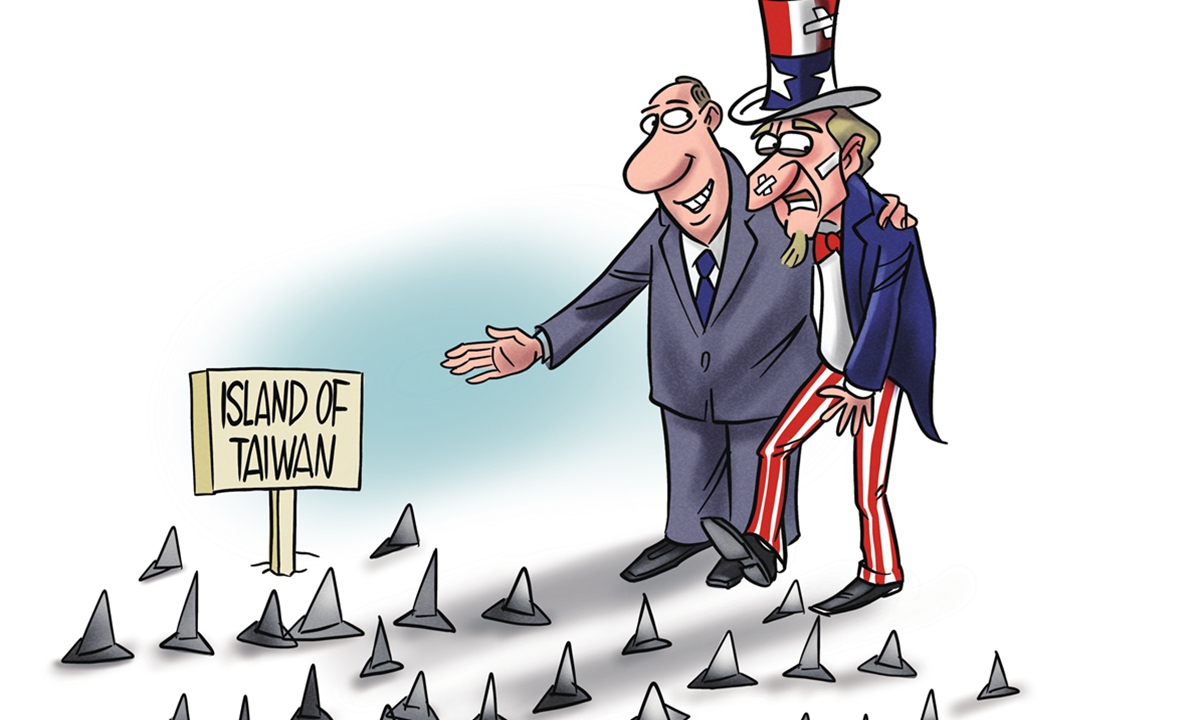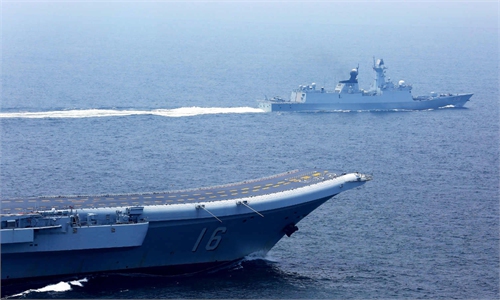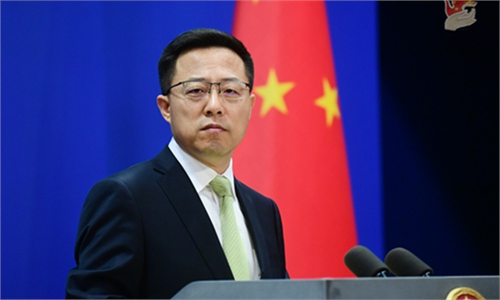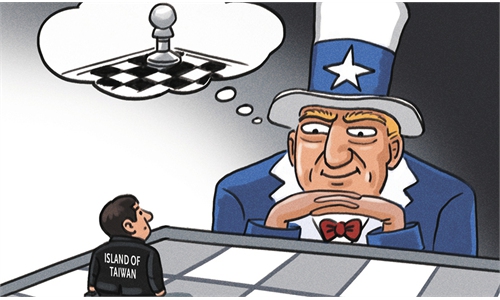
Illustration: Chen Xia/GT
Tensions around the Taiwan Straits have reached a new height. Emboldened by support from certain US lawmakers, Taiwan secessionist leader Tsai Ing-wen delivered an unprecedentedly provocative speech on Double 10 Day which advocated for "one country on each side."Pro-Taiwan US congressmen have played a pivotal role in advocating for closer ties between the US and island of Taiwan, either driven by partisan or constituent interests, or derived from their individual preferences and influenced by the lobbies from Taiwan.
Chain of interests
An article by the Washington Post titled "Congress must untie Biden's hands on Taiwan" on Monday, written by Rep. Elaine Luria called for clearing legal constrains for the US President so that he could "react in the time necessary to repel a Chinese invasion of Taiwan and deter an all-out war."
Last month, a Financial Times report caused quite a stir, as it said that the US is "seriously considering" to allow Taiwan to change the name of its representative office in Washington, from the Taipei Economic and Cultural Representative Office (TECRO) to the Taiwan Representative Office.
Taiwan made the request to the US in March. As early as last December, 78 lawmakers from the US House of Representatives sent a joint letter to then secretary of state Mike Pompeo, calling for the name change. One of them was Rep. Michael McCaul, Ranking Member of the House Foreign Affairs Committee.
McCaul has been a strong advocator of US arms sales to Taiwan. In 2017, he pushed forward the Taiwan Security Act which would facilitate military exchanges between US military officials at flag rank or above and US Department of Defense officials at assistant secretary level or above and their Taiwanese counterparts.
In July 2019, Tsai met with a group of US congressmen in New York, including McCaul. The visit came after the US approved a $2.2 billion arms package. In a later interview with Fox News, McCaul said Lockheed Martin will produce the military hardware that Taiwan was going to buy. But it turned out that McCaul received $5,000 in 2020 from Lockheed Martin, according to publicized data of the defense company.
On October 5, four congressmen penned a letter to US President Joe Biden, calling on him to re-establish formal diplomatic relations with Taiwan.
In July, the US House of Representatives passed a bill calling for a ban of the use of public funds to buy, make or display any map showing Taiwan as part of Chinese territory. The bill was co-introduced by Republican lawmakers including Scott Perry and Steve Chabot, among others.
Chabot is one of the co-founders of the Congressional Taiwan Caucus, which was formed on April 9, 2002 and focuses on improving American-Taiwanese relations.
Rising risks
It is collusion between the authorities of the Democratic Progressive Party and the US' anti-China forces that are costing US flexibility on the Taiwan question. The US' cross-Straits policy is to some extent being hijacked by these forces as well as those who do not want to see China-US relations ease.
Notorious anti-China senator Marco Rubio last week sent a letter to Biden after the US President informed the press that he and Chinese President Xi Jinping agreed to abide by the Taiwan agreement during their phone conversation, asking him to clarify his comments.
"Allowing the genocidal and totalitarian regime in Beijing to take Taiwan would not only completely undermine the credibility of the U.S. and our alliance system in the region, but also could potentially endanger international supply chains and trade that uphold the American economy," he blatantly asserted.
Biden, who in 2001 was then-senior senator from Delaware, wrote that "The President should not cede to Taiwan, much less to China, the ability automatically to draw us into a war across the Taiwan Strait."
As Tsai's authorities ratchet up political lobbying, some influential pro-Taiwan US congressmen are more prone to advancing US-Taiwan ties, which will weaken the Biden administration's ability to control the situation in the Taiwan Straits.
The author is an editor with the Global Times. wangwenwen@globaltimes.com.cn




